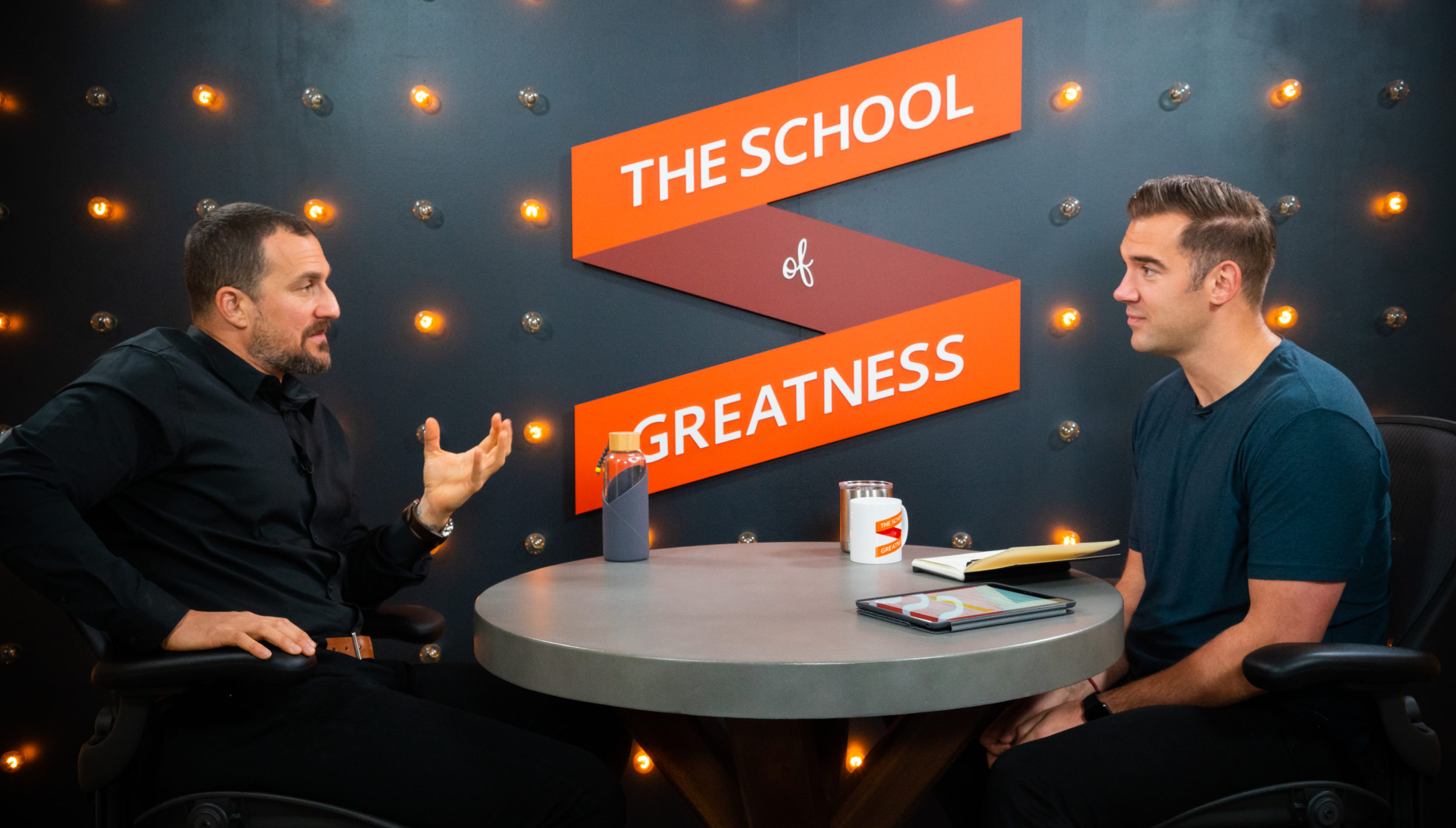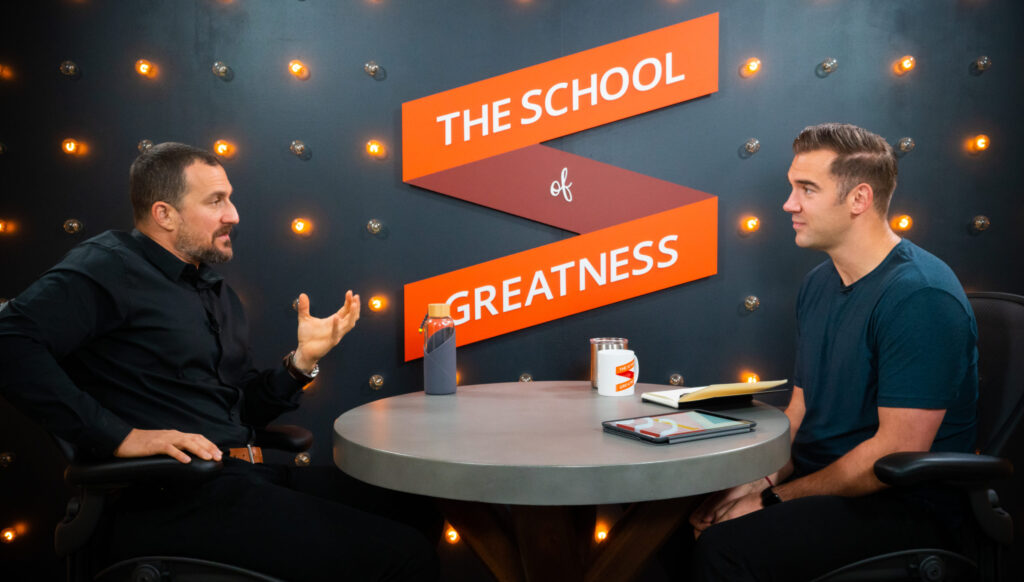Your mind is powerful.
I’ve probably heard this statement a thousand times. It’s all over the books, media, podcasts, videos, everywhere, and I know that you’ve heard it, too. But many of us still lack a deep understanding of its power and how to use it for our benefit.
My guest today blew up the internet and our podcast the last time we had him here on the show. He’s a neuroscientist, and he works as a professor of Neurobiology and Ophthalmology at Stanford University. With everything that’s happening around us, there isn’t a more perfect time to share his expertise than now. He’ll help us to understand our minds better so nothing can stop us from achieving the greatness inside each one of us. Let’s all welcome back, Andrew Huberman!
In today’s episode, Andrew and I dive deeper into understanding the amazing human mind. We talk about how to unlock its power — particularly during really stressful situations. You’ll be surprised at how practical his pieces of advice are! Lastly, Andrew shared his thoughts on the law of attraction. Our conversation was so powerful and incredible that we had to break it into two parts, so make sure you don’t miss Part 2.
This conversation is not just timely, but truly an eye-opener. It helped me so much, and I’m sure it’ll do the same for you, so let’s get to it!
Who Is Andrew Huberman?
Andrew Huberman is a neuroscientist at Stanford University. He also runs the Huberman Lab, which studies how the brain functions, how it changes through experiences, and how to repair the brain after injury or disease.
In his career, Andrew has made many important contributions to the fields of brain development, brain plasticity, and neural regeneration, and repair. He’s received numerous awards and recognitions for his research and publications, including the McKnight Foundation Neuroscience Scholar Award, the Biomedical Scholar Award from the Pew Charitable Trusts, and the Cogan Award for Research in Vision and Ophthalmology.
In addition to being a tenured professor of Neurobiology and Ophthalmology at Stanford, Dr. Andrew is a brilliant neuroscientist and teacher — he excellently explains complicated concepts so that everyday people can understand them and use neuroscience to improve their lives!
Andrew’s goal is to understand how the brain allows us to sense, evaluate, and respond to the world around us. He’s actively working on methods to re-wire and repair eye-to-brain connections for people who suffer from blinding diseases as well as investigating emotions and how they drive human behavior.
Dr. Andrew is clearly an expert on how the human brain works — I can’t wait for him to share his wisdom with you today!
You Cannot Control the Mind With the Mind
When things are really tough in life, how do you deal with them? Do you tell yourself to stop feeling your feelings? Does the line “Calm down” work on you? Do you sleep on it? We all deal with stress differently. But for Andrew Huberman, there’s a proper way of handling this:
“When you’re stressed, and you tell yourself, ‘Don’t stress,’ or, ‘Calm down,’ that rarely works. … It usually has the opposite effect, and it can be damaging for relationships. ” – Andrew Huberman
Now, I think that this is something new. We’ve been taught all along that when we feel stressed, we should tell ourselves that we should calm down or that we should relax. But what Andrew was telling us, is somewhat the opposite of our practice. He tells us to take a different approach — top-down control. I asked him what it’s all about, and here’s his answer.
“There is an interesting principle that states, “You cannot control the mind with the mind. What you should do instead is to look to the body. The nervous system includes the brain but also all the connections to the body and back again. So, when you can’t control your mind, you want to do something purely mechanical, like the physiological side. Once you take control of the body in that way, then the mind starts to fall under the umbrella of this top-down control.” – Andrew Huberman
Top-down control can only be done through the presence of a fully functional and matured prefrontal brain. It allows for us to have a brake over our limbic system, which is the part of our brain responsible for our behavior and emotions. He further explains why this top-down approach to life’s stressful events is the most effective there is.
“Trying to control the mind with the mind is like trying to grab fog. It’s just going to keep moving. … The key is to take control of a real physical entity — the phrenic nerve. This skill isn’t something that you build up over time, because you literally have a set of wires that goes down to your diaphragm that can move your lungs. When you decide that [you’re] going to use the physiological side to calm [yourself], that’s top-down control. By using your phrenic nerve, you’re able to control the cortex that controls the limbic system. You’re taking control of your internal landscape rather than trying to take control of your thinking.” – Andrew Huberman
This information is truly empowering. How often do we feel powerless, particularly in stressful and traumatic situations? Some of us might find ourselves easily frustrated, mad, and at times, just giving up. Worse, we feel enslaved by the circumstances we are in or the emotions we’re experiencing. We forget that there’s greatness within us.
By not using our minds to control our minds, we are able to process things better. In this way, we can be able to take back control in our lives amidst any situation!



